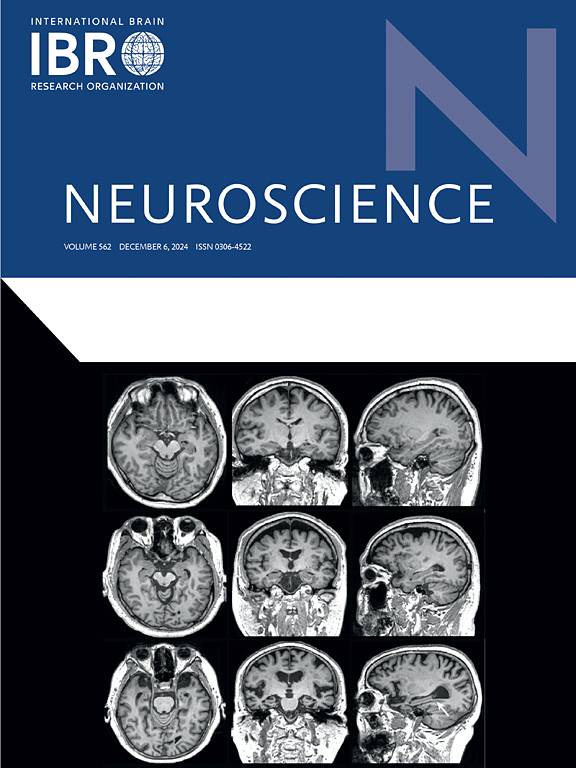运动预处理通过增强线粒体呼吸缓解大鼠缺血再灌注损伤
IF 2.8
3区 医学
Q2 NEUROSCIENCES
引用次数: 0
摘要
脑缺血和随后的再灌注损伤是临床上的常见病,与多种神经退行性疾病有关。脑缺血会剥夺脑组织必需的氧气和营养物质,破坏能量代谢,导致细胞功能障碍。虽然再灌注理论上有助于恢复,但它反而会引发复杂的损伤反应,如氧化应激、细胞凋亡和炎症,加重脑损伤。最新研究表明,通过调节能量代谢途径来增强神经元的能量状态,可以有效抵消这些影响。例如,增强线粒体功能、改善能量供应和减少有害代谢物可减轻氧化应激和细胞损伤。本研究调查了运动预处理对大鼠缺血再灌注损伤的保护作用。研究观察到,运动可通过上调 COX4 和 NAMPT 蛋白的表达、激活 AMPK 和线粒体复合物 V 来提高能量水平和线粒体呼吸,从而促进以促进氧化磷酸化(OXPHOS)和磷酸戊糖途径(PPP)以及减少糖酵解为特征的代谢重编程。这种重编程减少了有害代谢物,减轻了细胞凋亡和氧化应激,是减轻急性缺血缺氧引起的脑损伤的关键因素。这些发现为缺血性脑再灌注损伤引入了一种新的治疗方法,强调了 ATP 生成和代谢调节在神经保护中的关键作用。本文章由计算机程序翻译,如有差异,请以英文原文为准。
Exercise preconditioning mitigates Ischemia-Reperfusion injury in rats by enhancing mitochondrial respiration
Cerebral ischemia and subsequent reperfusion damage are prevalent in clinical practice, linked to numerous neurodegenerative diseases. Cerebral ischemia deprives brain tissue of essential oxygen and nutrients, disrupting energy metabolism and causing cellular dysfunction. Although reperfusion theoretically aids recovery, it instead initiates complex injury responses such as oxidative stress, apoptosis, and inflammation, worsening brain damage. Recent research suggests that enhancing neuronal energy status by modulating energy metabolism pathways can effectively counter these effects. For instance, boosting mitochondrial function, improving energy provision, and decreasing harmful metabolites can mitigate oxidative stress and cellular injury. This study investigated the protective effects of exercise preconditioning against ischemia–reperfusion injury in rats. It was observed that exercise enhances energy levels and mitochondrial respiration by upregulating the expression of COX4 and NAMPT proteins and activating AMPK and mitochondrial complex V. This process facilitates metabolic reprogramming characterized by the promotion of oxidative phosphorylation (OXPHOS) and the pentose phosphate pathway (PPP), alongside a reduction in glycolysis. Such reprogramming reduces harmful metabolites, mitigating apoptosis and oxidative stress, and is a key factor in alleviating acute ischemic hypoxia-induced brain damage. These findings introduce a novel therapeutic approach for ischemic brain reperfusion injury, underscoring the crucial role of ATP production and metabolic regulation in neuroprotection.
求助全文
通过发布文献求助,成功后即可免费获取论文全文。
去求助
来源期刊

Neuroscience
医学-神经科学
CiteScore
6.20
自引率
0.00%
发文量
394
审稿时长
52 days
期刊介绍:
Neuroscience publishes papers describing the results of original research on any aspect of the scientific study of the nervous system. Any paper, however short, will be considered for publication provided that it reports significant, new and carefully confirmed findings with full experimental details.
 求助内容:
求助内容: 应助结果提醒方式:
应助结果提醒方式:


